News
A FOOTBALL TEAM’S FIGHT FOR FAIRNESS
In celebration of International Women’s Day, documentary makers Maggie Eudes, Maggie Miles and Lucy Maclaren share the untold stories behind the rise of women’s football in Australia, documented in their upcoming film, Trailblazers.
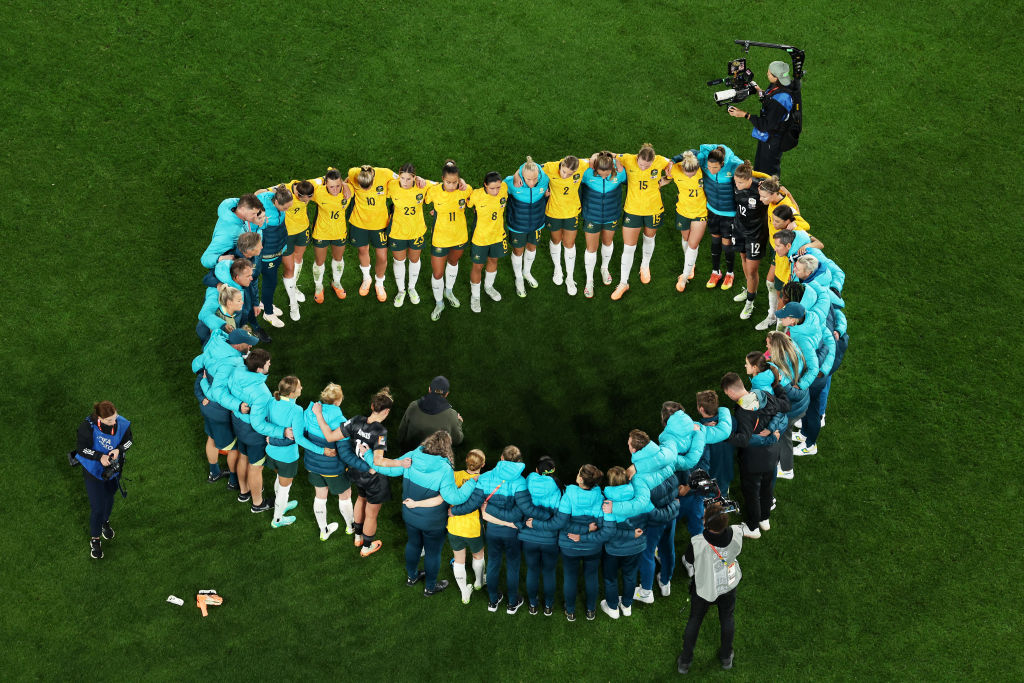
Australia v England: Semi Final - FIFA Women's World Cup Australia & New Zealand 2023
A MEETING OF MINDS
Director and cinematographer, Maggie Eudes, grew up playing football in her home country France, witnessing the French Men’s World Cup which left a lasting impression on her as a young footballer. In July 2020, she connected with director and producer Maggie Miles, originally from England, and together they predicted that the 2023 Women’s World Cup would become a watershed moment in Australian sporting history. As co-writers and directors, they conceived of a film that would document the journey of our nation’s beloved Matildas, from 1979 to today, and Trailblazers was born.
Co-writers/directors/producers Maggie Eudes and Maggie Miles
“We had the strategy underpinning our approach, which was to liaise with players first” Miles explains. “We were very aligned with Kate Gill at the PFA [Professional Footballers Australia], who was front and centre and helped us gain the players’ trust.” With early development funding from VicScreen, Eudes travelled to Sweden, France and England to start interviewing footballers.
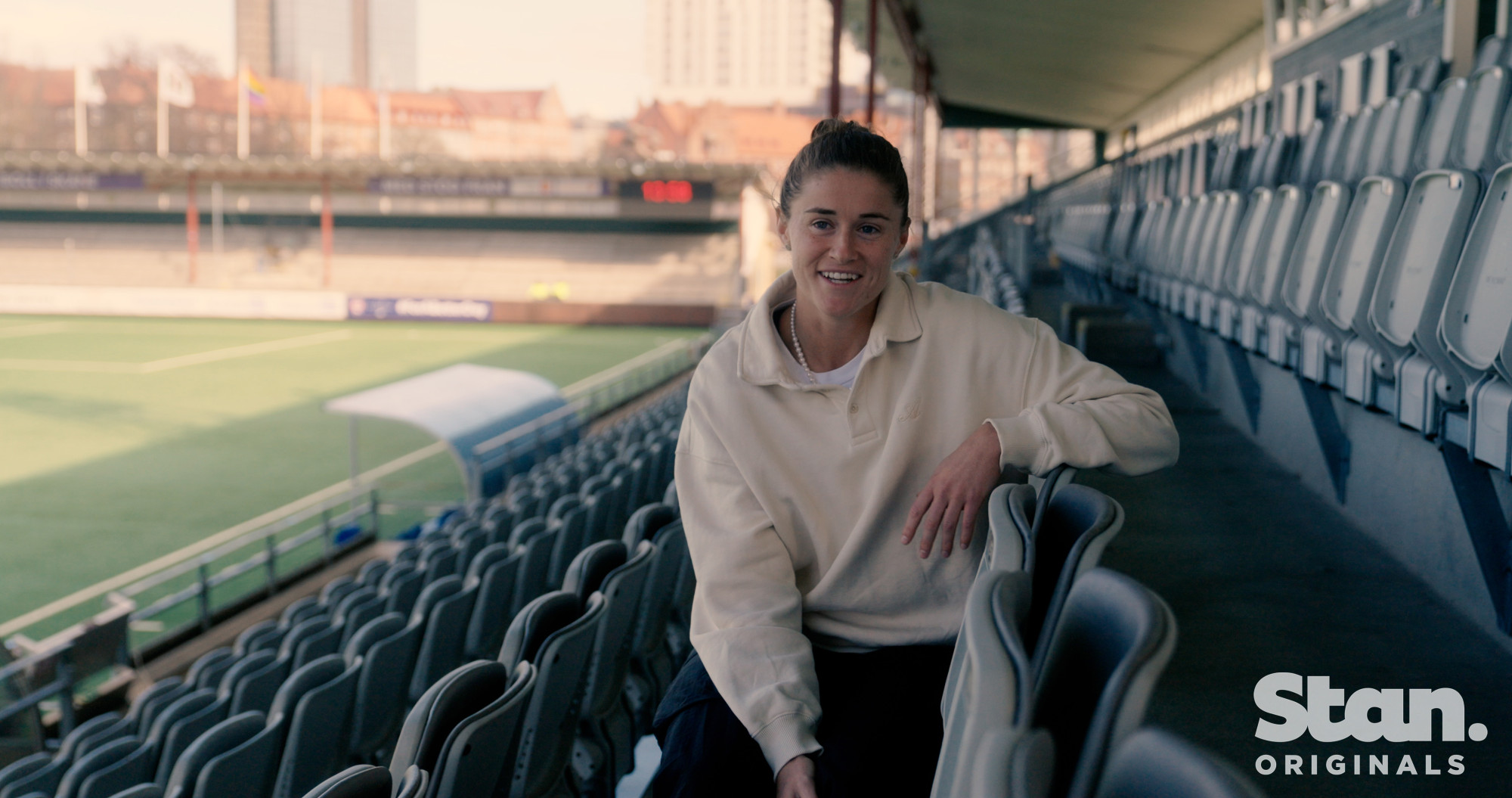
Goalkeeper Teagan Micah being interviewed for Trailblazers
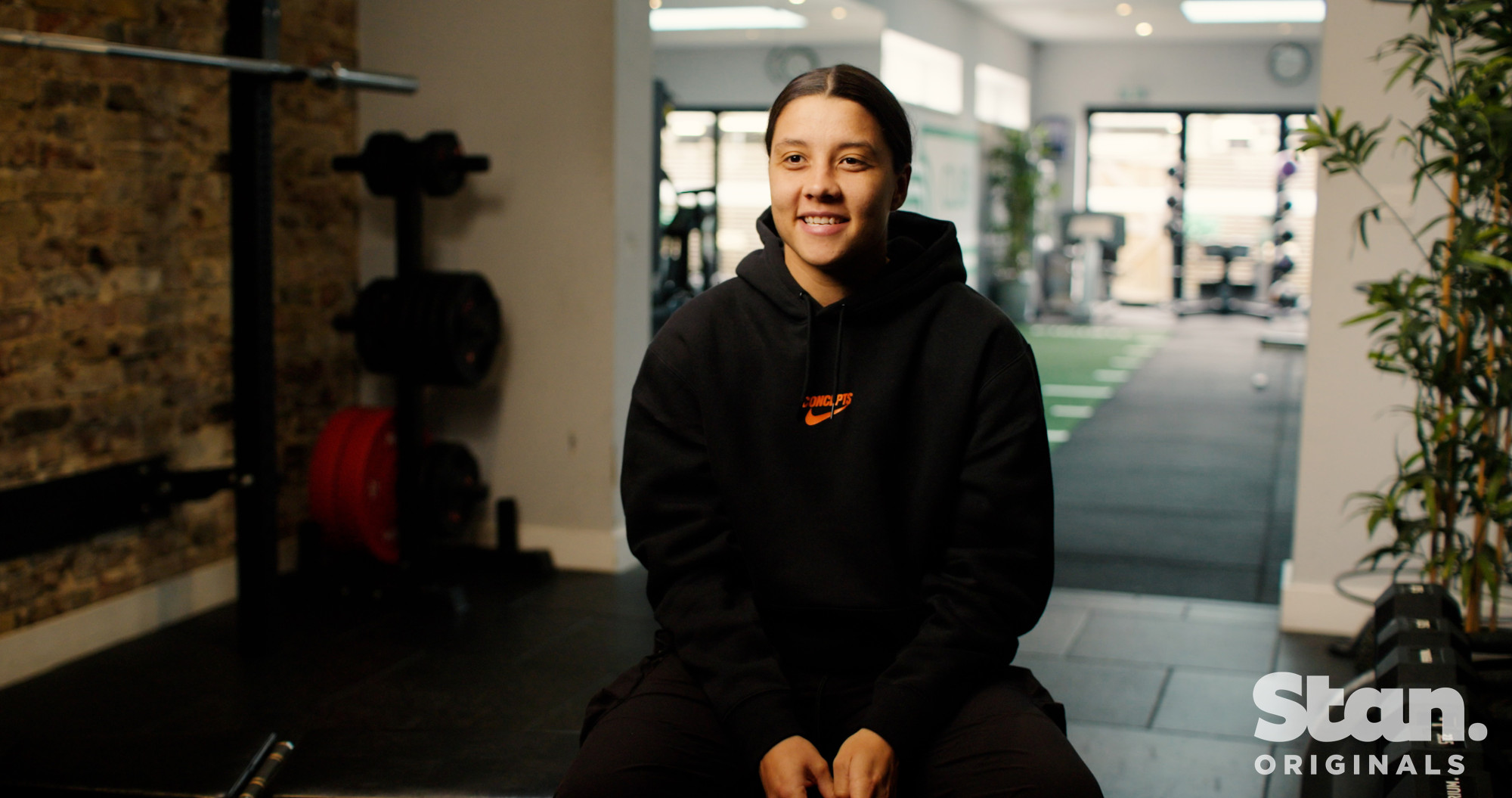
Matildas Forward Sam Kerr being interviewed for Trailblazers, photo by Maggie Eudes
As the project built momentum, Miles and Eudes engaged seasoned producer Lucy Maclaren and the filmmakers brokered a deal with Mecca M-power (a social change movement dedicated to educating, elevating, and empowering girls), which provided vital production and impact investment.
A GROUNDSWELL OF SUPPORT FOR THE MATILDAS
Miles, Eudes and Maclaren had predicted correctly that there would be a groundswell of interest in women’s football after the joint bid announcement for the Australia-New Zealand 2023 FIFA Women’s World Cup.
“It was really clear that something interesting was going to happen,” Miles remembers. But did the team expect the Matildas to blow up quite the way they did, selling out arena stadiums in a matter of minutes?
“To me, yes,” Eudes stresses. “Absolutely. And I also knew that – as it happens so often in women's sports – everyone else would be surprised by how successful they were, instead of expecting it.” The team felt a sense of urgency back in 2020 to share their film with the world as soon as possible; there was a consensus that they would soon be witnessing sporting history.
However, like in sport, there were several setbacks and injuries to their progress, which delayed the film’s anticipated release. “We have been chopped off at the ankles a couple of times, but our overriding focus is the players,” Miles says. “The current players, the former players, the future players, and the allies of the game. That's the story we chose to profile and put forward.”
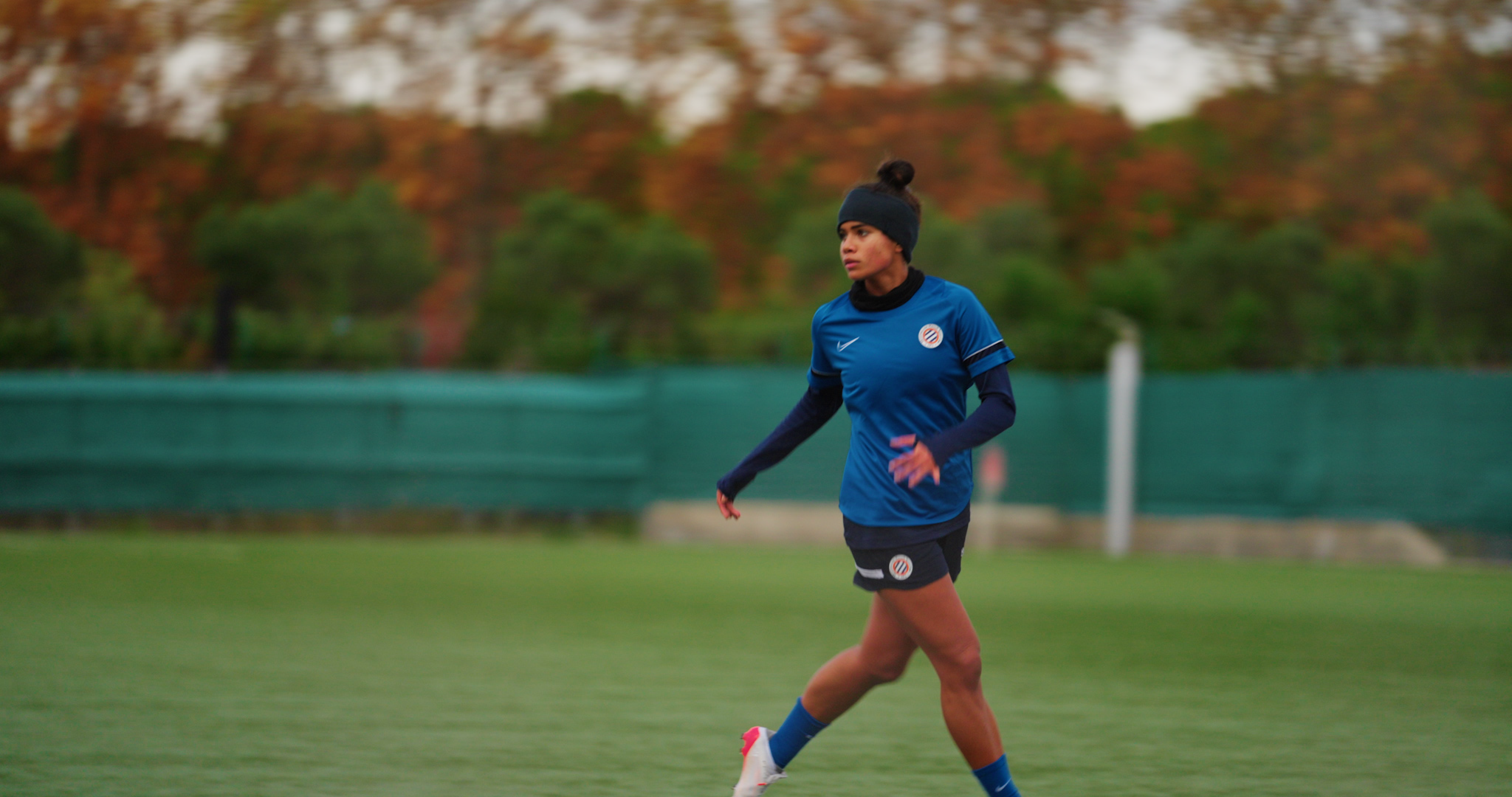 Matildas forward Mary Fowler at training, photo by Maggie Eudes
Matildas forward Mary Fowler at training, photo by Maggie Eudes
CENTRAL THEME OF GENDER EQUALITY
At its core, Trailblazers is a case study in gender equality, the team say. It asks the imperative question: should a man and woman doing the exact same job, committing the same hours on and off the field for their national football team, be paid the same amount of money?
“The film is a metaphor in a whole series of ways for what's happening in our wider society regarding the gender pay gap,” Maclaren says. “It's an important way of making that story visible, in an interesting and entertaining format.”
“There's a nice parallel in the film that applies to every other industry,” Eudes continues, “which is that women tend to have to prove themselves before they get the job. And then they need to be excellent at it. We’ve always called the film a case study for gender equality, because it shows how when we invest in women and girls, this is the kind of success you can get.”
More than winning tournaments and trophies, the film documents how the Matildas set out to achieve parity with the national men’s team, the Socceroos, and how they won. By sharing this story, Miles, Maclaren and Eudes hope future generations of girls will feel inspired to lace up their cleats or follow their dreams in whatever arena they are passionate about, knowing they deserve equal pay and conditions as their male counterparts.
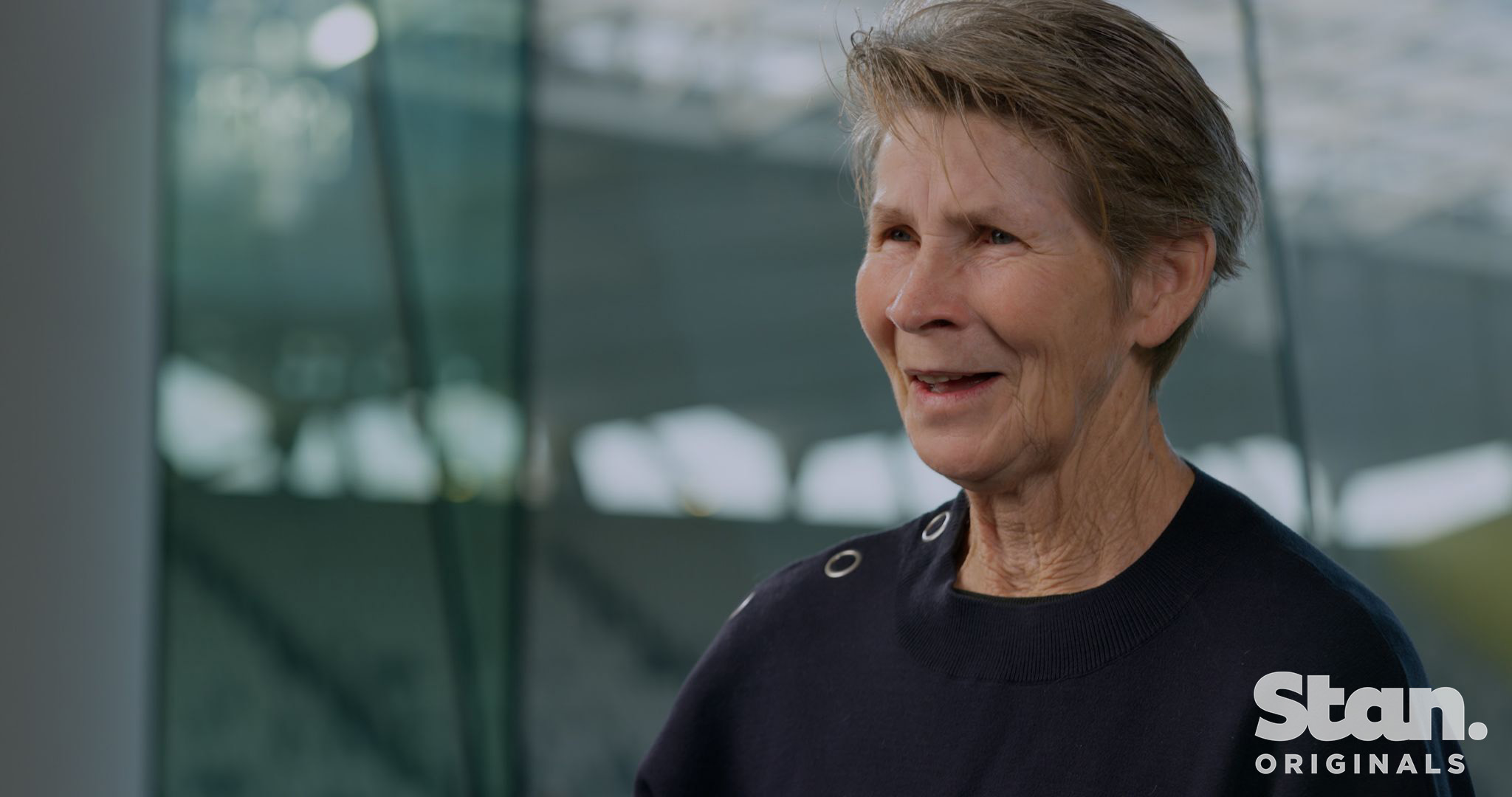
“This film has been a long time coming and many trailblazers of Australian women’s football are thrilled to get the chance to put their story on the record. Those early years were a lotta fun and we had no choice but to fight for recognition to enable us to play the game we love.”
Julie Dolan AM, Cap # 1, debut 1979, first Captain
HOPE FOR THE FILM
As a Stan Original documentary, and with the backing of Mecca M-power, the film’s focus is grounded in its impact campaign, Maclaren explains. “This film comes from a completely different place than most documentaries in Australia…the emphasis of it was philanthropic, and the impetus is about impact and change.”
At the community level, girls are participating in sports at significantly lower levels than boys, their campaign clarifies. At the elite level, women often receive unequal support, pay and media coverage. Women are also underrepresented in leadership positions at all levels of sport. This disparity impacts not only the individuals involved in sport, but also society more broadly.
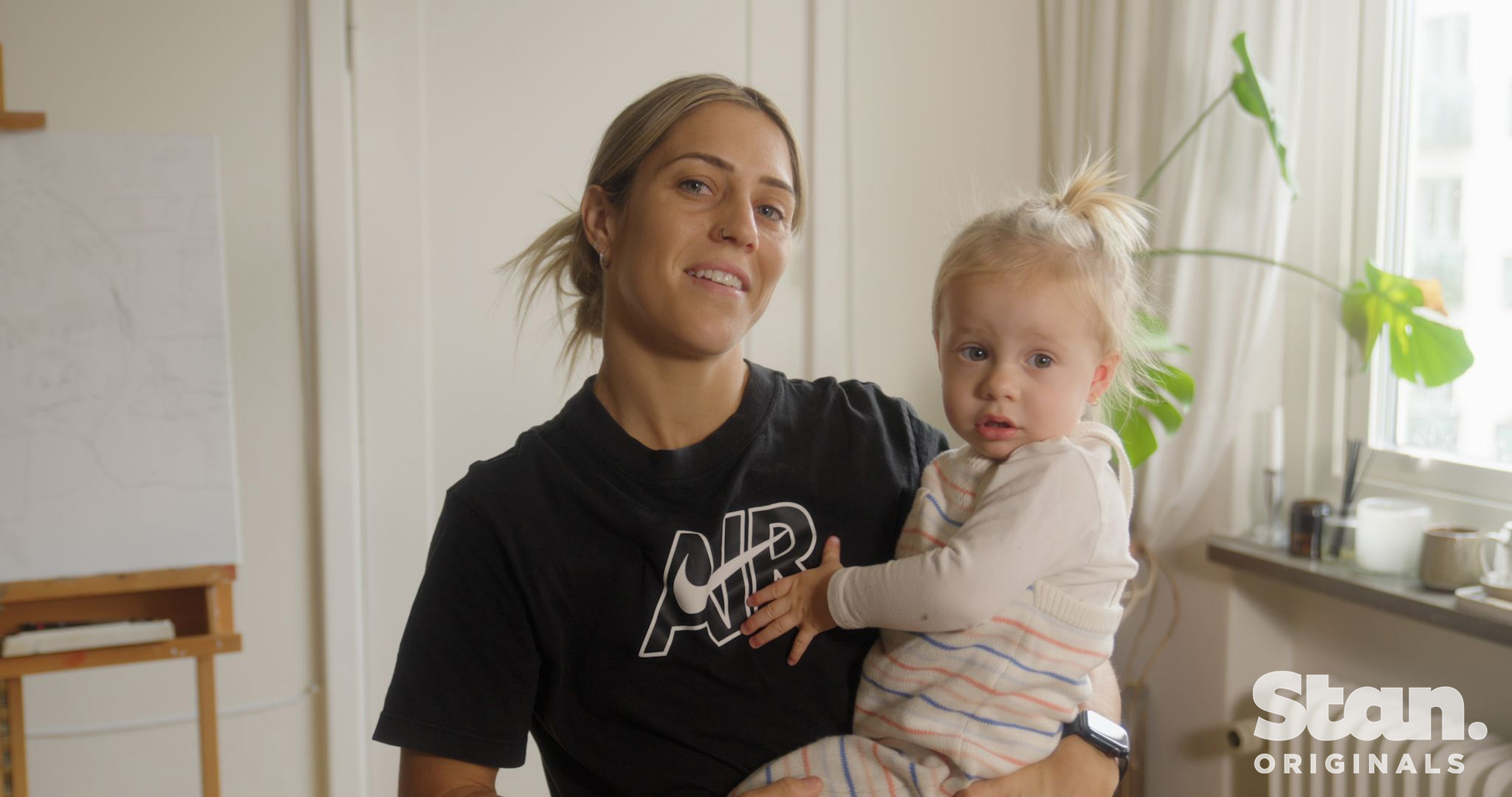
Matildas midfielder Katrina-Lee Gorry and her daughter Harper.
With the recent success of the Matildas, and the buzz generated by the 2023 Women’s World Cup, an opportunity exists to both celebrate the gains that have been made in women’s football and also spark action on issues where change is still needed.
Trailblazers will be released in the lead-up to the 2024 Paris Olympics and comes with an educational syllabus to be rolled out in schools across Australia. More than a dramatic retelling of a football team and their fight for fair pay, the creatives behind Trailblazers hope the film becomes a catalyst to redress gender inequality in all areas of society.
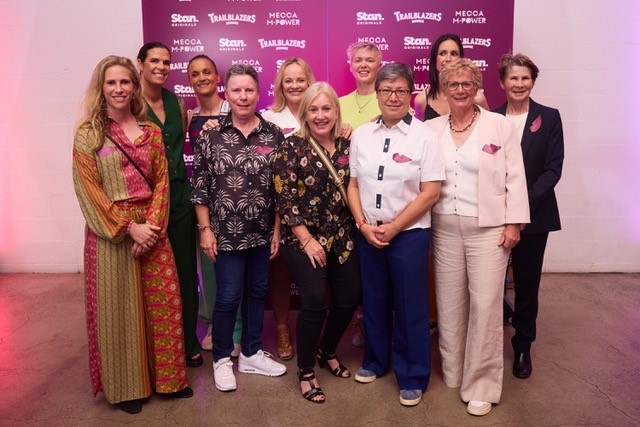
Celebrating the launch of Trailblazers
PINCH YOURSELF MOMENTS
Sitting down with some of our greatest contemporary female footballers including Sam Kerr, Caitlin Foord, Hayley Raso, Katrina Gorry, Teagan Micah, Ellie Carpenter, Steph Catley, Mary Fowler and Clare Polkinghorne was a privilege and a little awe-inspiring, Miles and Eudes confirm.
However, interviewing the alumni who blazed the trail before them, like Julie Dolan, the Matildas’ first captain, Leigh Wardell, Karen Menzies, Renaye Iserief, Moya Dodd, Emily Gielnik, Melissa Barbieri and others was equally moving, and set out the narrative of courage, determination, and the ‘never say die’ spirit at the centre of the film.
These alumni, who played to empty stadiums, who paid out of their own pockets to attend the first Women’s World Cup and who fought, not just for equal pay, but for pay at all, chipped away at the entrenched systems of gender discrimination in sport, to level the playing field for future generations of athletes. Today, players for the Matildas and Socceroos receive equal pay and conditions under the same collective bargaining agreement. Perhaps this is the Matildas’ greatest win to date, and one that surely deserves national attention and celebration.
Trailblazers is more than a film, its creators think. With the help of their “brilliant and intuitive” editor Sarah Edwards, and an all-female team working tirelessly behind the camera, they’ve captured the indomitable spirit of women who dared to defy expectations and rewrite the rules of the sport they love.
The theme for International Women’s Day in 2024 is ‘Inspire Inclusion’. Like the Matildas, Miles, Eudes and Maclaren are leading by example by sharing untold stories of female activism and triumph; undoubtedly inspiring the next generation of girls to stand up, be brave, and chase their dreams.
Trailblazers will stream on Stan in the lead-up to the Matildas’ tour at the 2024 Paris Olympics.